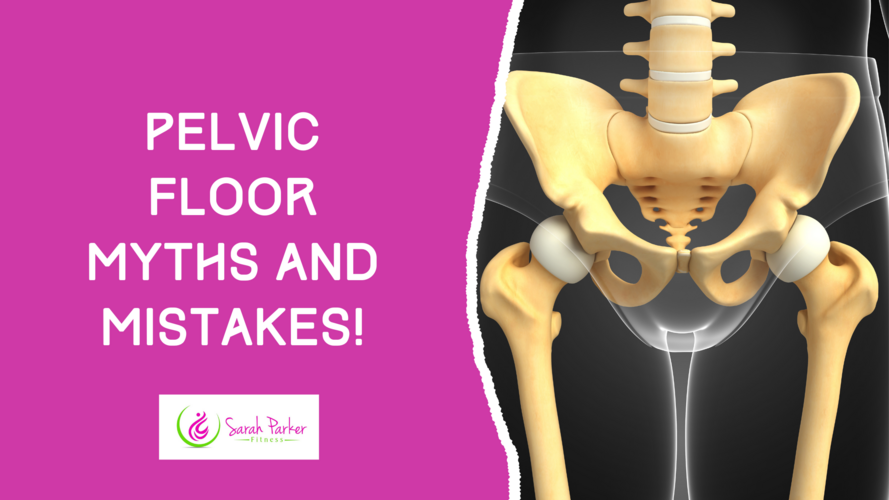BLOG
postnatal exercise
Strong for Life
I started with Bums, Tums & Wobbly Bits at a school in Reddish once a week. Now there are multiple ways on my timetable to get stronger - Total Body Tone, Kettlebell circuits, Strength and Cardio, Low Impact HIIT and Pilates!
Core strength without the strain
Did you know your core should switch on JUST BEFORE it's needed?
And that there should be no feeling of strain or bearing down?
Or that you can use other parts of your body to initiate a core connection - instead of sucking in, zipping up or lifting up on pelvic floor
Find out more about your core in the videos below!
If you would like to learn more about switching on your pelvic floor and core without straining and helping it to become more of an automatic switch on - I have a masterc…
What is the best exercise for a prolapse?
I was asked a few weeks ago for the top exercises someone could do to help a prolapse.
My answers were:
- It depends
- Hypopressives
The thing with prolapse is that it can happen because of so many factors and it's not just about strengthening the pelvic floor.
And even just pelvic floor strength isn't that simple.
The pelvic floor is made up of layers of muscle, going in a variety of directions.
It has links with muscles inside the pelvis and outside the pelvis.
It has connections all…
Pelvic Floor Exercises Mistakes - and how to do it right
Myth #1 - Leaking is inevitable after childbirth, menopause and as you age
But just because it’s common, that doesn’t mean you have to put up with it!
How you can help your pelvic floor
However taking your time, …
Is postnatal exercise just for YOU?
But in addition to mums deserving to do something that benefits them, I also see so much benefit to the babies comi…
When can I run again?
First up you shouldn't return to formal exercise until 6 weeks postnatal (8-10 if you've had a caesarean) and you should be getting the all clear from your doctor, although I know some doctors wait t…
Categories
- Parenting (8)
- Pelvic floor (23)
- Pregnancy (9)
- postnatal (26)
- diastasis (4)
- exercise (42)
- postnatal exercise (14)
- caesarean (8)
- healing foods (2)
- nutrition (3)
- Uncategorized (5)
- pregnancy exercise (11)
- prolapse (9)
- Pilates (10)
- kegels (7)
- pelvic organ prolapse (9)
- mothers day (2)
- mothers love (2)
- body shaming (2)
- c-section (3)
- health (46)
- breathing (11)
- core strength (14)
- relaxation (11)
- diastasis recti (4)
- mummy tummy (3)
- fitness (23)
- healthy living (26)
- old age (12)
- prenatal (7)
- back pain (6)
- pelvic girdle pain (1)
- PGP (3)
- pregnancy (3)
- abdominal exercises (5)
- crunches (4)
- c-section recovery (3)
- childbirth (1)
- healing (4)
- six week check (1)
- wound (2)
- anniversary (1)
- exercise classes (12)
- Sarah Parker Fitness (5)
- thanks (1)
- bladder health (2)
- incontinence (6)
- pregnancy pain (2)
- sciatic pain (1)
- breastfeeding (2)
- new mum (3)
- return to exercise (6)
- feet (2)
- gait (2)
- posture (6)
- walking (4)
- baby development (1)
- goals (3)
- New Years resolutions (3)
- healthy eating (1)
- benefits of exercise (9)
- exercise pill (4)
- core exercise (5)
- aching after exercise (1)
- DOMS (1)
- muscles soreness (1)
- healthy choices (13)
- mothering (1)
- fun (4)
- mum guilt (2)
- mum life (2)
- national breastfeeding week (1)
- self-care (18)
- aging well (10)
- workout (8)
- LBT (3)
- cardio (2)
- heart health (6)
- mobility (5)
- stretches (5)
- stress relief (8)
- back care (3)
- walkfit (3)
- beginners (3)
- hypopressives (2)
- menopause (1)
- brain health (1)
- menopause (1)
- mindfulness (1)
- beginners exercise (1)
- gentle exercise (1)
- strength (1)
- kettlebells (1)
- trigger point Pilates (1)


